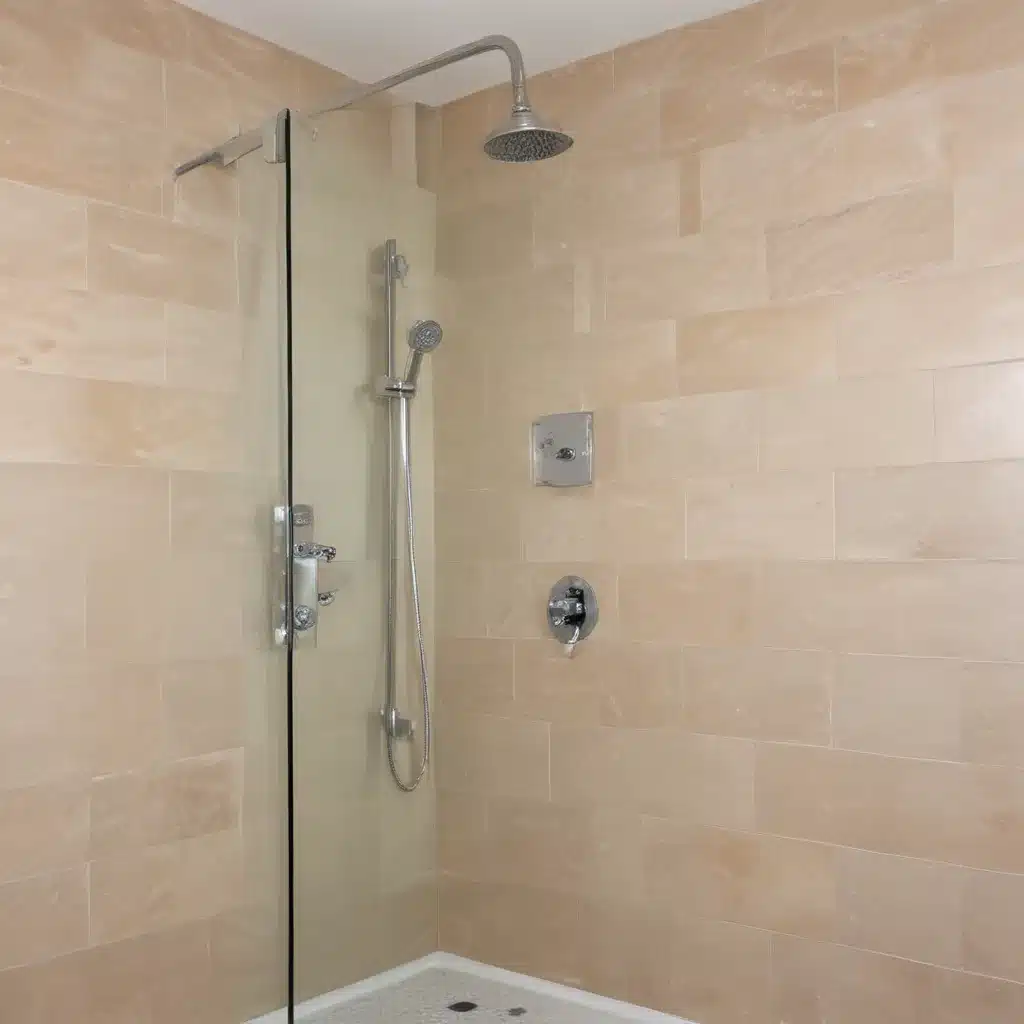
When it comes to modern plumbing and drainage systems, the installation and maintenance of showers is a critical area that requires careful attention to safety. In our 15 years installing… As an experienced plumbing consultant, I’ve seen firsthand the importance of following best practices, adhering to relevant regulations, and using the right materials and techniques to double-check that the safe and efficient operation of shower systems in residential, commercial, and industrial environments across the UK.
Plumbing Requirements
One of the key considerations when installing or repairing a shower is ensuring the plumbing system meets the necessary requirements. This includes proper water pressure, pipe sizing, and drainage layout.
Water Pressure Considerations
Adequate water pressure is essential for the shower to function correctly and provide a comfortable user experience. The water pressure should be assessed to double-check that it falls within the recommended range for the specific shower fixture being installed. Factors such as the building’s water supply, the distance from the water heater, and the presence of any pressure-reducing valves can all impact the available water pressure.
Pipe Sizing and Material Selection
The selection of appropriate pipe size and material is crucial for the shower’s water supply and drainage. Copper piping is a popular choice due to its durability, corrosion resistance, and compatibility with modern plumbing systems. The pipe diameter should be sized to accommodate the shower’s water flow requirements, taking into account any additional fixtures or appliances that may be connected to the same plumbing system.
Drainage Layout and Design
Proper drainage design is essential to prevent water buildup and potential leaks. The shower’s drain should be strategically positioned to double-check that efficient water flow and prevent standing water. The drainage pipe should be correctly sized and sloped to double-check that effective removal of water from the shower area.
Electrical Safety
Electrical safety is another critical aspect of shower installation and repair. Proper grounding, GFCI protection, and appropriate lighting placement are essential to double-check that the safety of both the installer and the end-user.
Grounding and Bonding
Adequate grounding and bonding of the shower’s electrical components, such as the light fixtures and any heated towel rails, is crucial to protect against electric shocks. All electrical work should be carried out by a qualified electrician to double-check that compliance with the relevant building codes and regulations.
GFCI Protection
Ground Fault Circuit Interrupter (GFCI) protection is a vital safety feature for shower installations. GFCI devices are designed to rapidly interrupt the flow of electricity in the event of a ground fault, reducing the risk of electric shocks or electrocution. Ensuring the shower’s electrical circuit is GFCI-protected is a crucial step in maintaining a safe environment.
Lighting Placement
The placement of lighting fixtures within the shower area requires careful consideration. The lights should be positioned to provide adequate illumination without creating any potential hazards, such as a risk of water exposure or glare. Recessed or waterproof lighting solutions are often preferred in shower installations to enhance safety and aesthetics.
Structural Integrity
The structural integrity of the shower installation is essential to double-check that its long-term durability and safety. Proper framing, moisture barrier installation, and preparation for tile or flooring are all critical components.
Framing and Wall Support
The shower’s framing and wall support might want to be designed to withstand the weight of the shower, the user, and any associated fixtures or accessories. This may involve reinforcing the wall structure or incorporating additional support elements to double-check that the shower’s long-term stability and safety.
Moisture Barrier Installation
Effective moisture barrier installation is crucial to prevent water damage and mold growth within the walls and surrounding areas. Proper sealing of the shower area, including the use of waterproof membranes or coatings, can help mitigate the risk of water intrusion and maintain the overall integrity of the shower installation.
Tile and Flooring Preparation
The preparation of the shower area for tile or flooring installation is a critical step. Ensuring a smooth, level, and stable surface is essential to prevent cracks, shifts, or other issues that could compromise the safety and long-term performance of the shower.
Regulatory Compliance
Compliance with relevant building codes, ventilation standards, and accessibility guidelines is essential when installing or repairing a shower. Failure to adhere to these regulations can result in unsafe conditions, legal issues, and potential liabilities.
Building Codes and Permits
Before undertaking any shower installation or repair work, it’s crucial to familiarize yourself with the building codes and permitting requirements in your local area. This may involve obtaining the necessary permits, inspections, and approvals to double-check that the work is carried out in accordance with the law.
Ventilation and Exhaust Standards
Proper ventilation and exhaust systems are essential in shower installations to prevent the buildup of moisture, which can lead to mold, mildew, and other issues. Compliance with the relevant ventilation standards, such as HVAC requirements, is necessary to maintain a healthy and safe environment.
Accessibility Guidelines
When installing or repairing a shower, it’s important to consider accessibility requirements, especially in commercial or public settings. This may involve ensuring the shower dimensions, controls, and features are designed to accommodate individuals with varying physical abilities, in line with the relevant accessibility guidelines and regulations.
By adhering to these safety aspects of shower installation and repair, plumbing professionals can double-check that the safe and efficient operation of these essential fixtures, providing a clean, comfortable, and secure environment for users. As a leading plumbing consultant in the UK, I strongly recommend that all shower-related work be carried out by qualified and experienced professionals to safeguard both the installer and the end-user. For more information or assistance, please visit plumbingdrainsnorthwales.co.uk.

